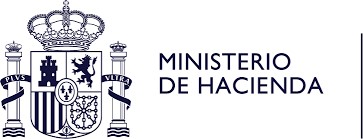“A4S aims to become the intelligent ally between surgeons and benchmark minimally invasive surgery robots in minimally, enabling the universalisation and democratisation of its use. The system opens up new perspectives on the state of the art of robotic surgery through innovative solutions at both the hardware and software levels”
AI and Metaverse to improve surgical processes
Nowadays, medicine uses minimally invasive surgery (MIS) techniques, offering patients multiple benefits. In this respect, laparoscopic MIS stands out – a technique that has now become more popular than other conventional open surgery techniques as it reduces trauma, pain and infection, and enables shorter hospital stays.
However, this surgery also still comes with challenges for surgeons, as it involves long training periods and more complicated surgical protocols.
There are currently no robotic platforms on the market with surgical application in laparoscopic MIS where surgeons can design a personalised surgical plan prior to surgery, using metaverse training environments. This would improve processes by automating surgical tasks through artificial intelligence.
This need was detected at the Jesús Usón Minimally Invasive Surgery Centre Foundation, a multidisciplinary institution dedicated to research, training and innovation in the healthcare field. In response to this problem, TECNALIA is working on the development of a system that allows the automation of tasks and processes in surgical robotisation systems through the AUTOPILOT project.
Task automation technology in laparoscopic robotic surgery
TECNALIA is developing the A4S system, an intelligent alliance between robots and surgeons that is part of the AUTOPILOT project. A4S provides a robotic system and a set of AI-based tools and capabilities; a breakthrough that opens up new perspectives on the state of the art of robotic surgery through innovative solutions at both hardware and software levels.
Main goal:
A4S provides intelligent surgical assistance through haptic perception, admission modelling and pseudo-haptic feedback, with a focus on surgeon usability.
This is where augmented reality with 3D structure, automated danger zone detection, assistance and automation, through shared human-robot control, come into play to increase the surgeon’s dexterity.
The system is part of the AUTOPILOT project and also includes the development of a metaverse and/or extended-reality training environment.
In short, a unique robotic platform that will lead to innovations in the future of robotic surgery.
Throughout the project, the laparoscopic robotic surgery prototype and the associated training environment will be developed. The final prototype will be validated in the Autonomous Region of Extremadura, in the facilities of the Jesús Usón Minimally Invasive Surgery Centre (CCMIJU), a multidisciplinary institution dedicated to research, training and innovation in the healthcare field.
Multidisciplinary team
This ambitious development involves a large team of HEALTH researchers from TECNALIA, specialising in Medical Technologies, medical robotics and expert staff in AI and digital twins.
The team’s combined talent, experience and capabilities will lead to the development of innovative technologies applied to the creation of sustainable surgical tools for minimally invasive surgery.
A4S aims to become an “intelligent ally” between surgeons and benchmark minimally invasive surgery robots, enabling the universalisation and democratisation of its use. “The A4S system opens up new perspectives on the state of the art of robotic surgery through innovative solutions at both the hardware and software levels,” says Anthony Remazeilles, Health Researcher at TECNALIA and expert in Medical Robotics.
This technology incorporates the automation of surgical tasks supervised by the surgeon and that will revolutionise the current scenario.
*AUTOPILOT automatic surgery is an initiative co-funded by the European Regional Development Fund (ERDF) in the framework of Spain’s Pluri-regional Operational Programme 2021-2027 and the Spanish Centre for Technological Development and Innovation (CDTI); it has a budget of €10m and an implementation period of 42 months.



